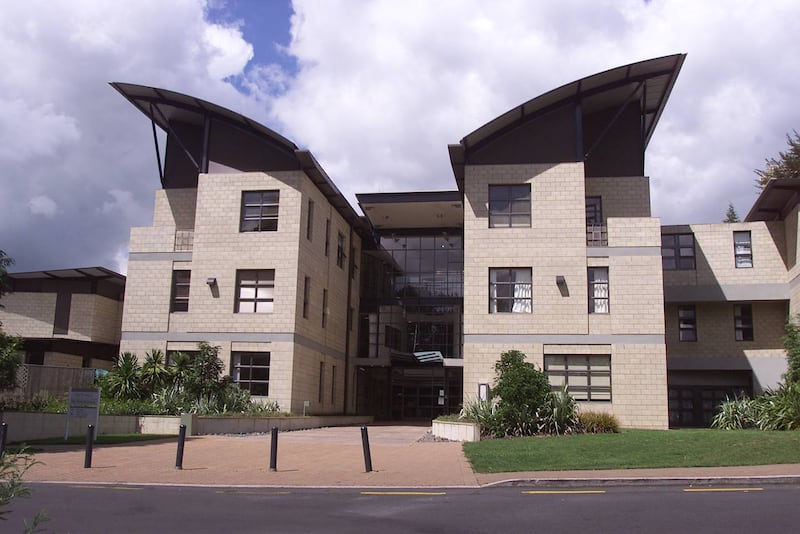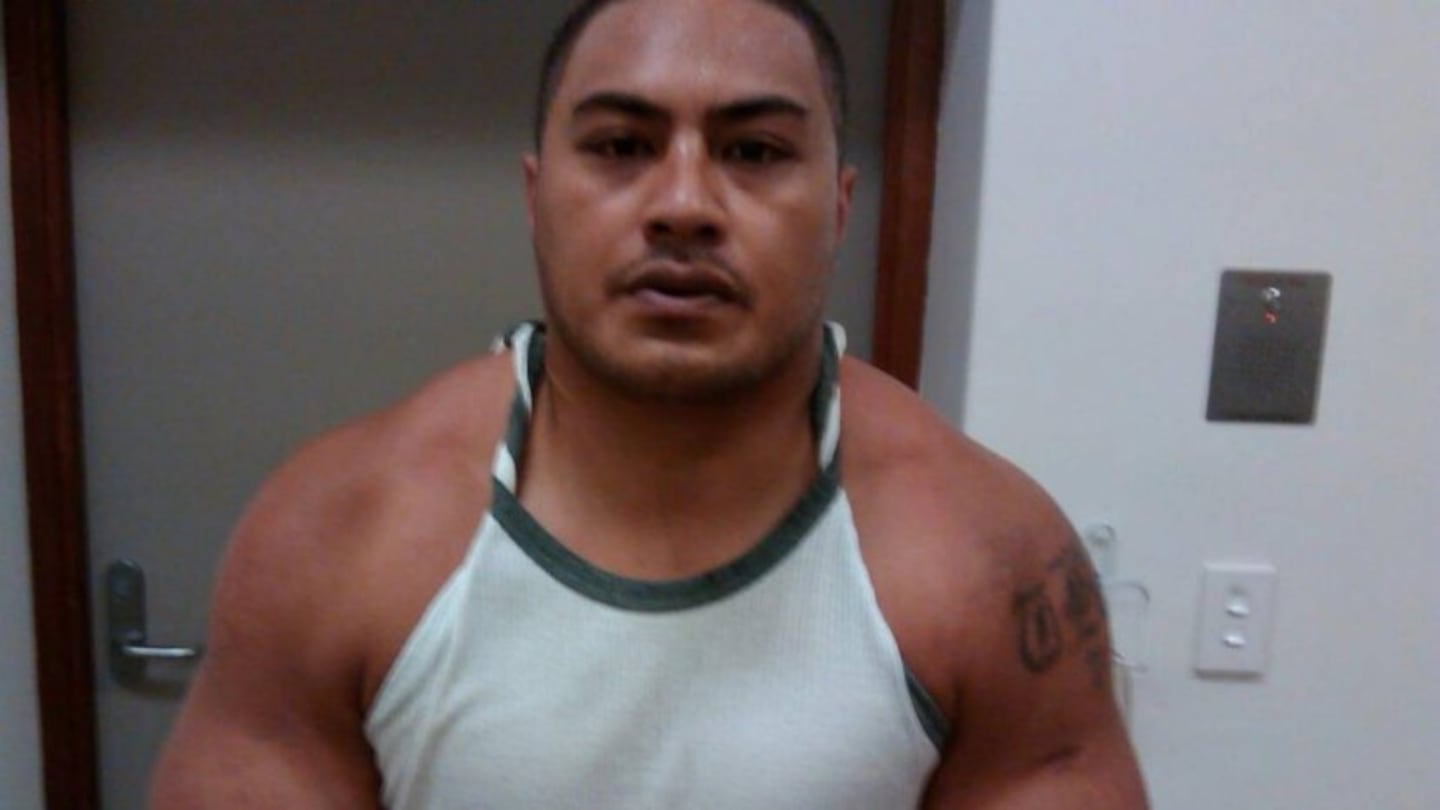break
A psychiatrist in charge of care for a mentally unwell man who was fatally shot by police says he never had any warning the patient's mental health had deteriorated.
Vaughan Te Moananui was shot and killed by police in May 2015 when he confronted them with a gun outside his sister's home in Thames.
The psychiatrist responsible for the 33-year-old's care in the community, is giving evidence in an inquest into Te Moananui's death in the Hamilton District Court.
The consultant psychiatrist, who has name suppression, said there was no warning that Te Moananui was relapsing.
"He had his own apartment, he had his own car, he had a social life, he had a job.
"He was doing regular blood tests for [drug and alcohol] disclosure, picking up his medication from the pharmacy on time. I never had any indication that anything was wrong."
Te Moananui, a father, who suffered from schizophrenia and had a history of mental health issues and violent offending, was discharged from Waikato Hospital's Henry Rongomau Bennett Centre in April, 2014.
The psychiatrist began working for Waikato District Health Board in July 2014 and took over Te Moananui's care.
The inquest, before Coroner Michael Robb, resumed in the Hamilton District Court today after the psychiatrist rejected criticism of his care of Te Moananui in interim findings following an inquest in October 2019.
At today's hearing counsel for the Coroner, Andrea Twaddle, put to the psychiatrist that he missed important warning signs of relapse in his patient including that he had lowered his medication, was drinking alcohol again and was involved in a drunken altercation.
"You personally didn't contact the whānau, you personally didn't contact the church, you personally didn't contact the employer, so I suggest to you that is not an assertive role that you were playing."
He denied that he did not read progress notes from Te Moananui's key worker, one of which reports Te Moananui might be drinking alcohol again.

The Henry Rongomau Bennett Centre, at Waikato Hospital in Hamilton where Vaughan Te Moananui was discharged from 13 months before his death. Photo / Derek Flynn
The senior doctor said the drinking was not an established fact, it was only a rumour that Te Moananui's mother told the key worker.
Coroner Robb asked the psychiatrist if it occurred to him that Te Moananui living on his own could be a risk factor for him resuming drinking alcohol, which he'd had trouble with since the age of 13.
The doctor said he did not, and that he viewed Te Moananui getting his own apartment as being independent and a step toward having his son live with him.
But Coroner Robb said the evidence showed Te Moananui's drinking was not under control.
He had been in an altercation after drinking at the Kopu Tavern on March 8 and needed treatment at Waikato Hospital.
His employer reported he had become unreliable and paranoid. He also came off his motorbike and suffered a black eye.
Robb said the DHB's multi-disciplinary team caring for Te Moananui, including the psychiatrist, were unaware of these warning signs.
"The team didn't know because there wasn't close monitoring of him," Robb said.
By February 2015 the key worker was not in regular contact with Te Moananui or his family and he had not had counselling with a psychologist since November.
When asked why Te Moananui was not given alcohol and drug support, the psychiatrist said he would not have been accepted on a programme because he had been sober for three years.
When asked about the risk created by Te Moananui reducing his medication, the psychiatrist said he did not see that as a problem because Te Moananui was mentally stable.
He said there was no evidence of psychosis in Te Moananui and the patient reduced the Clozapine because it was making him drowsy and he worked with heavy machinery.
The psychiatrist said the whānau were difficult to get hold of and that Te Moananui was a private person who did not want whānau at meetings with his key worker.
The court heard after Te Moananui dropped his medication from 200mg to 50mg, he did not return text messages from his key worker, did not reply to a hand-delivered letter and was reportedly drinking alcohol.
At the same time his son was diagnosed with a medical condition that had a negative impact on Te Moananui.
Paul White, counsel for the DHB, asked an independent psychiatrist acting as an expert for the inquest, whether a psychiatrist would be concerned at that at the patient's next appointment, in this case on April 2.
The expert said it should be a concern. But he would not necessarily have increased appointments to monthly from three monthly.
Another expert witness, former Director of Mental Health and forensic psychiatrist Dr David Chaplow was surprised the psychiatrist was given the complex case of Te Moananui two weeks after arriving in the country.
Earlier, counsel for the psychiatrist, Matthew McClelland, QC, pointed out that the key worker - who was the link between Te Moananui and the psychiatrist - was not competent and was eventually dismissed from the DHB.
The inquest continues on Tuesday.
WHERE TO GET HELP
• Lifeline: 0800 543 354 (available 24/7)
• Suicide Crisis Helpline: 0508 828 865 (0508 TAUTOKO) (available 24/7)
• Vaka Tautua – Services offered in the languages of Samoa, Tongan, Cook Islands, Māori or English. Freephone 0800 OLA LELEI (652 535)
• Youth services: (06) 3555 906
• Youthline: 0800 376 633
• Kidsline: 0800 543 754 (available 24/7)
• Whatsup: 0800 942 8787 (1pm to 11pm)
• Depression helpline: 0800 111 757 (available 24/7)
• Rainbow Youth: (09) 376 4155
• Helpline: 1737
If it is an emergency and you feel like you or someone else is at risk, call 111




